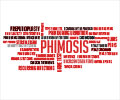Elijah Rose's bris was quite different from the ceremony long used to initiate Jewish boys into a covenant with God: There was no circumcision
Elijah Rose's "bris" was quite different from the ceremony long used to initiate Jewish boys into a covenant with God: There was no circumcision. His parents decided to move away from the tradition of celebrating their son’s birth in Jewish customs.The custom of removing the foreskin from the penis.
There was no crying, no scalpel, no blood, no ``mohel'' - the person who traditionally performs ritual circumcisions in the Jewish faith. ``I knew before I was even pregnant that I would not circumcise,'' said Query, 39, a San Francisco filmmaker whose son was born in 2002. ``It's not like you're just cutting a piece of paper off a pad - there's no `cut here' line. It's not made to be cut off, and I would never, ever do that to my baby.Circumcision is the removal of the foreskin, which is the skin that covers the tip of the penis. In the United States, it is often done before a new baby leaves the hospital. There are medical benefits and risks to circumcision. Possible benefits include a lower risk of urinary tract infections, penile cancer and sexually transmitted diseases. The risks include pain and a low risk of bleeding or infection. These risks are higher for older babies, boys and men. Circumcision remains the nation's most common surgery, and the United States is still one of the few developed countries where a majority of baby boys are circumcised. Circumcision is still common in many Jewish and Muslim communities.
According to data from the National Health and Social Life Survey, the U.S. circumcision rate peaked at nearly 90 percent in the early 1960s but began dropping in the '70s. By 2004, the most recent year for which government figures are available, about 57 percent of all male newborns delivered in hospitals were circumcised. In some states, the rate is well below 50 percent.
Experts believe that immigration from other countries like Asia and Latin America into the United States is one of the reasons for the decline of Circumcision in the US. In these countries circumcision is unheard of.
Changing attitude of the people towards their bodies is also one of the reasons for the decline. Many fathers do not want their son to go through the same pain they went through.
“The rates of drug-free labor and breast-feeding all rose during the 1980s, while the initial declines in male circumcision rates began during the 1980s as well,” said Katharine Barrett, an anthropology lecturer at Stanford University. “It may have been part and parcel of the wider effort to reclaim bodies — adult female and infant male — from unnecessary and potentially harmful medical interventions.”
Many doctors still recommend circumcision because of some evidence that it reduces the risk of penile cancer, urinary tract infections, HIV and perhaps other sexual transmitted diseases. Many major insurance companies still cover it, and many hospitals offer it free for newborns.But circumcision opponents say the medical benefits are dubious. Penile cancer, for example, is extremely rare. Since 1999, the American Academy of Pediatrics has not endorsed routine circumcision.
Source-Medindia
BIN/J
 MEDINDIA
MEDINDIA
 Email
Email






